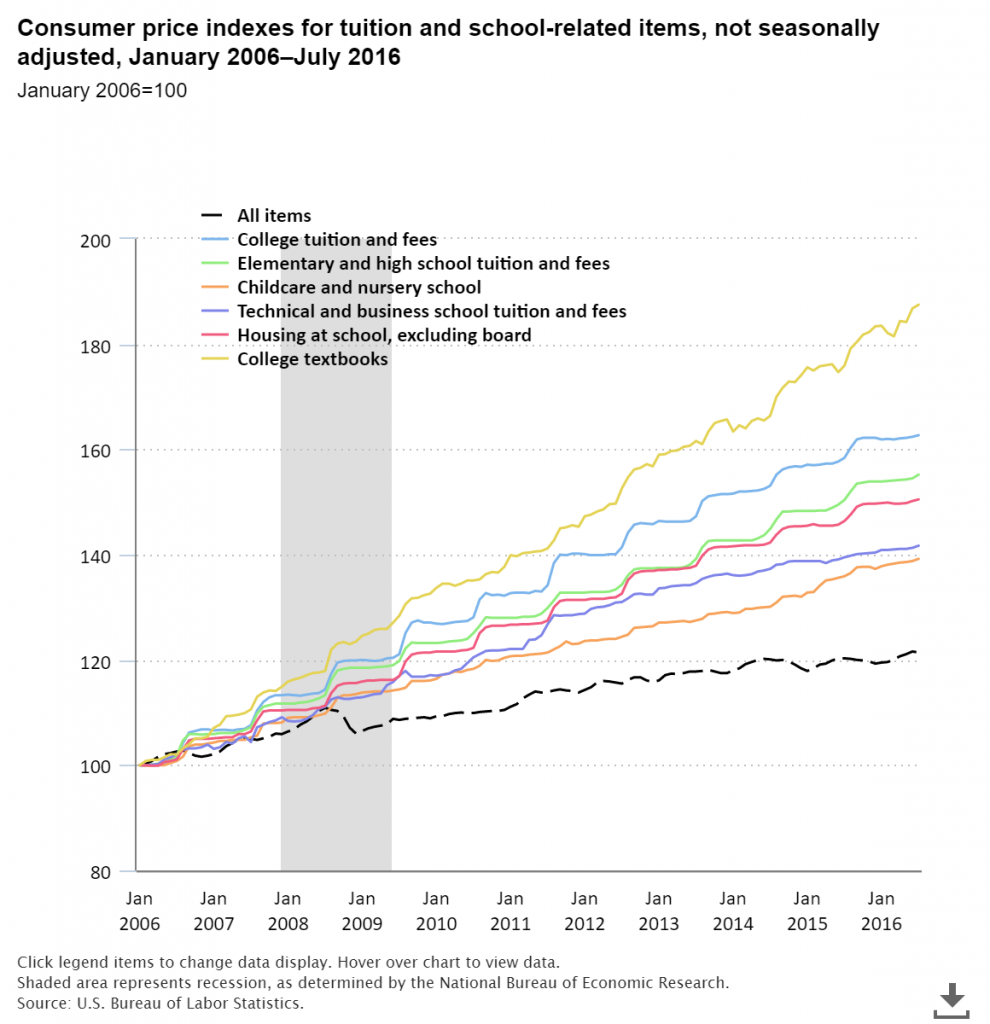Peirce College Reduces Textbook Costs by Transitioning Courses to Open Educational Resources
Peirce College Reduces Textbook Costs by Transitioning Courses to Open Educational Resources
Over the past few decades, the cost of college textbooks has risen dramatically. Between 2006 and 2016, the cost of textbooks rose 88 percent (Bureau of Labor Statistics), which is much faster and higher than regular inflation and other college costs.

For adult students, every penny counts when finishing your degree. At Peirce, initiatives are underway across the College to find ways to save our students time and money.
One of the College’s newest initiatives? Converting as many courses as we can to use free and low cost resources – called open educational resources (OER) – instead of pricey textbooks, to save students money.
Peirce faculty members recently received two grants from the Pennsylvania Grants for Open and Affordable Learning (PA GOAL) program to convert ten courses to OER. These courses were chosen for conversion because they have high enrollments across all of Peirce’s programs and because they have high textbook costs. Courses being converted now are:
- MGT 114: Essentials of Customer Service
- MGT 126: Organizations and People
- MGT 130: Introduction to Supervision
- MKT 101: Introduction to Marketing
- BUS 310: Concepts in eCommerce
- COM 112: Essentials of Public Speaking
- ENG 103: Rhetoric and Research
- HUM 104: Critical Thinking and Reading
- PSY 101: Introduction to Psychology
- SOC 101: Introduction to Sociology
Co-leading the re-development for the first five courses are Dr. Cathy Littlefield, Professor and Faculty Chair, Business, and Kristin Inciardi, Director of Library Services. Three of these courses – MGT 114, MGT 126, and MGT 130 – have already been transitioned to OER and are running this fall.
“It made sense to start with courses that would benefit students the soonest,” said Dr. Littlefield. “MGT 114 and MGT 126 are taken frequently as electives, so a lot of students are taking these courses, not just business students. There are now students in every program who are benefitting from this transition.”
The first newly developed course to run was MGT 114, which had 29 students in Session 1. According to an end of course survey, students overwhelmingly found these new materials easy to use and understand, and that they were effective in helping them learn. Plus, they didn’t cost students anything to access.
“For MGT 114, it’s a course with zero textbook costs,” said Ms. Inciardi. “The resources used are a mix of OER and ebooks through the Library’s subscription to EBSCO.”
An added benefit to this transition? Students have immediate access to their course materials, so no one is left behind.
“Using these resources and having them live in the Canvas course means that students now have access to course materials on the first day of class,” said Ms. Inciardi.
Additionally, the content can be more customized to the actual course outcomes.
“We’re now able to customize the resources for what students need to know, instead of relying on what the publisher thinks students should know in their textbook,” said Dr. Littlefield. “And since we build our programs and curricula in coordination with industry experts and advisory boards, this allows us to align our instructional materials directly with what industry experts are telling us their employees need to know.”
Other faculty members have also started to work on redesigning their courses to utilize OER, and the College is working to find OER solutions to as many courses as possible. In fact, a number of Peirce courses had already been converted to using OER. For example, BUS 100, SCI 105, PRC 101, and ENT 200 have all been using open materials for the past few years.
Have questions about OER at Peirce? Contact us at studentinfo@peirce.edu.
- Prev Post
- Next Post
© 2024 Peirce College. All rights reserved.

LeaveComment